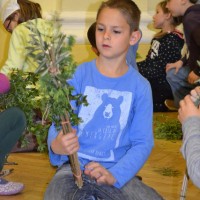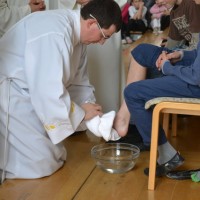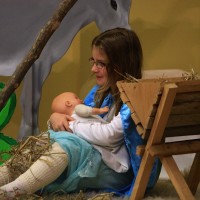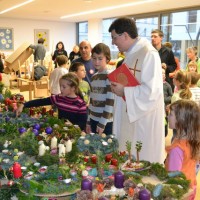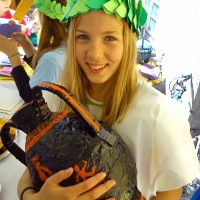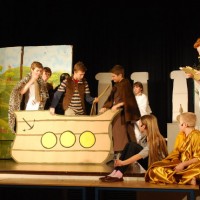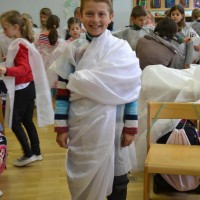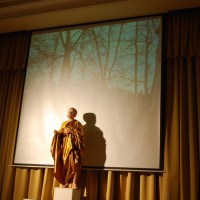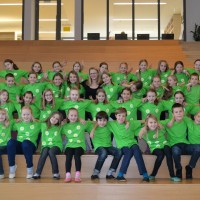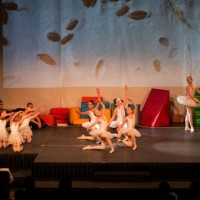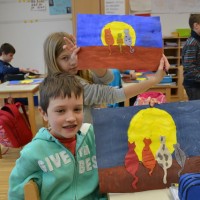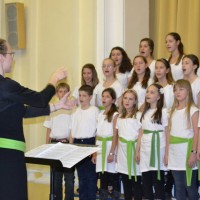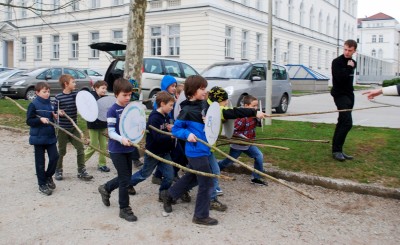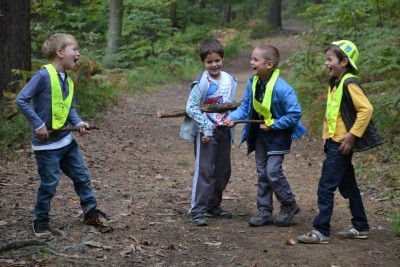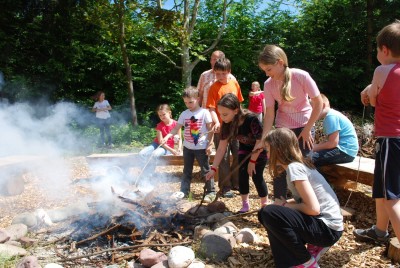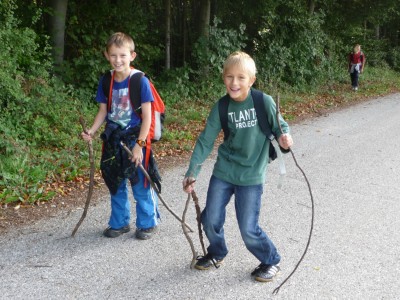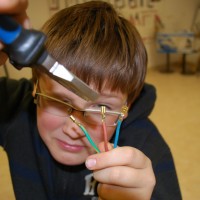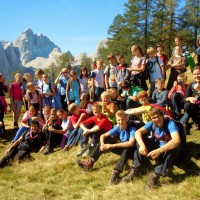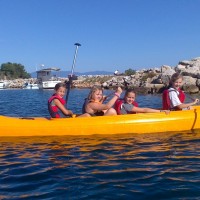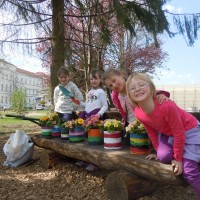Headmistress: Nuša Pohlin Schwarzbartl [email protected]
Deputy Head: Nejc Capuder, B.A.; [email protected]
School Chaplain: Marko Čižman, B.A. [email protected]
International Office: Helena Podboj Mlakar, B.A. [email protected]
Secretary: Metka Pirš Zupin, M.A. [email protected]
School Life
Pupils come mainly from Ljubljana and its vicinity. The school’s aim is to continue the education that children receive at home. Most of them come from larger families.
Curriculum
Academic structure
The schooling lasts nine years; the first period encompasses the first five grade levels and the second period the remaining four. In the first period (grades 1 through 5) one teacher teaches the majority of the subjects, whereas in the second period (from grade 6 onwards) different teachers teach each subject. Registration for the Alojzij Šuštar Primary School is open to children who meet the requirements of the state and whose parents agree with the educational programme of the Catholic primary school.
Educational concept
The educational concept, which is based on Christian values, realises the following objectives: educating honest, tolerant, responsible and sympathetic citizens; presenting religious life as values; familiarizing pupils with Christian faith, tradition and values; teaching respect for those who think differently; teaching responsibility towards our natural environment; presenting nature as God’s creation; and integrating Slovenian and European cultural traditions into the awareness of our own identity.
Pastoral care
The school subjects Encountering Religion (in the first five grade levels) or Religion and Culture (in the latter four grade levels) aim to allow students to discover the human attitude towards transcendence. Thus fundamental human questions about the future and life acquire a religious dimension.
Another unique activity in our school are the family days during which the pupils spend a weekend with their class teacher, school chaplain and facilitators living in nature outside the urban environment. Parents are welcome to join at the end. Family days offer many opportunities to experience nature and all its beauties, to have discussions, to make friends, and to seek answers to the questions of life.
Each class chooses one volunteer or charity activity that they carry out during the school year.
Classical culture
Classes in the first period already incorporate aspects of classical culture, whereas an independent subject called Classical Culture, in which students encounter their first Latin words, is taught in the second period. Knowing Latin enables the students to enrich their vocabulary and facilitate learning all other languages.
Performing arts
Numerous actistic activites offer improvement in children’s motivation, concentration, confidence and teamwork.
Class choirs are formed in the first three grade levels with choir lessons held twice a week. Later pupils may join the two choirs: Alojzij Šuštar Primary School Children’s Choir (singers aged 9 and 10) and Alojzij Šuštar Primary School Youth Choir (singers aged 11-14). They feature a repertoire of folk and art songs and also present an annual musical. Two years ago the musical Humpty Dumpty was staged.
All pupils in the first three grades take dance lessons with a dance instructor once a week. Dance lessons are taken also in the 5th grade as well as in the 9th, when pupils prepare for the solemn end of primary school celebration. Dance activities include folk dances, rhythmic gymnastics and jazz ballet.
There are three drama clubs, of which two are in Slovene and one in English. This is the time when pupils get acquainted with theatre and improvisation. The English Drama Club stages annually one performance in the English language of which the Christmas fairy tale The Nutcracker and the musical The Sound of Music were the most popular. Last year they prepared Billy Elliot.
Some children express themselves through the school of fine arts, which offers foundations in drawing and painting and enables pupils to explore a wide variety of materials.
Outdoor learning
Outdoor learning promotes friendly and protective attitude towards the environment. There is an extensive outdoor classroom on the school premises, where classes are held and in the afternoon children can spend some quality free time.
International cooperation
International activities enhance the programme of the primary school. Children learn on the spot about new places, customs and languages or other specific subjects related to the particular international activity. Foreign collaboration also strengthens the collective consciousness of belonging to the European cultural space. The last project the pupils were engaged in was an international project on outdoor learning in Norway.
Regular annual activities
The following projects take place 2-3 times a year:
Nature days are meant for exploring nature and its inhabitants through research work and natural phenomena. Sports days are intended for sports activities and learning about the natural environment. On culture days pupils go to the theatre, which can touch their imagination or fire an artistic impulse. The purpose of the health days is preventive health care. During these days pupils have regular checkups. Lessons in manual skills are meant to enable pupils for practical work in technical and artistic fields. The days are designed for pupils to experience as much independent practical work as possible.
Week-long projects:
Summer school in nature is held in the 5th grade, and a winter school in the 7th grade. Project days are intended as work in the fields of natural and social studies. They are scheduled for the 6th year. The so-called artistic week in the 8th year aims at an artistic performance project, in which every student participates according to his interests and abilities. The sociological week in the 9th year aims at learing about society, media and developing critical thinking. Work on cross-curricular projects encourages pupils to use knowledge gained in various subjects as well as in everyday life outside school. Project work also takes place from the 1st to the 5th year during regular classes.
English lessons start already in the first grade and all pupils take them.
